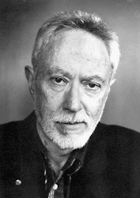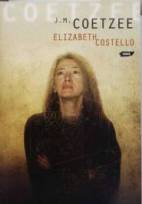Nobel Laureate J.M. Coetzee on Animal Death Camps
|
The internationally renowned Australian novelist and Nobel Laureate J.M. Coetzee gave a speech in Sydney last week, where he made a powerful case for animal rights—with a particular focus on the food industry, which, as he puts it, “dwarfs all others in the number of individual animal lives it affects.” Two moments in his speech really stood out for me—in the first, he compares factory farms to death camps, concisely making the point that so many people miss when they encounter this controversial comparison for the first time: That the practice of degrading living beings to the status of production units should be rejected out of hand, regardless of the victims. Here’s what he says:
“Of course we cried out in horror when we found out what they had been up to. We cried: What a terrible crime, to treat human beings like cattle! If we had only known beforehand! But our cry should more accurately have been: What a terrible crime, to treat human beings like units in an industrial process! And that cry should have had a postscript: What a terrible crime, come to think of it – a crime against nature – to treat any living being like a unit in an industrial process!”
|
Another comment Coetzee made that really struck me related to the way children perceive animals—his remarks hint at the disturbing fact that, as we grow up, the process of socialization itself can blind us to uncomfortable truths about the wrongs that our society inflicts on others. That children are much better equipped than we are to see the horror of factory farming for what it is, and that those of us who choose to ignore it, or attempt to excuse it, do so only because we have been duped and misled by our own greed and the complacence of others:
“Given half a chance, children see through the lies with which advertisers bombard them (the happy chooks that are transformed painlessly into succulent nuggets, the smiling moo-cow that donates to us the bounty of her milk). It takes but one glance into a slaughterhouse to turn a child into a lifelong vegetarian.”
At their core, the main principles of the animal rights movement are simple and intuitive—easy enough for a child to understand. But it’s inspiring to see them expressed with such thoughtfulness and eloquence by one of the world’s greatest writers. You can read an edited extract of J.M. Coetzee’s speech here.
 Nobel Prizewinner J.M. Coetzee
Nobel Prizewinner J.M. Coetzee
